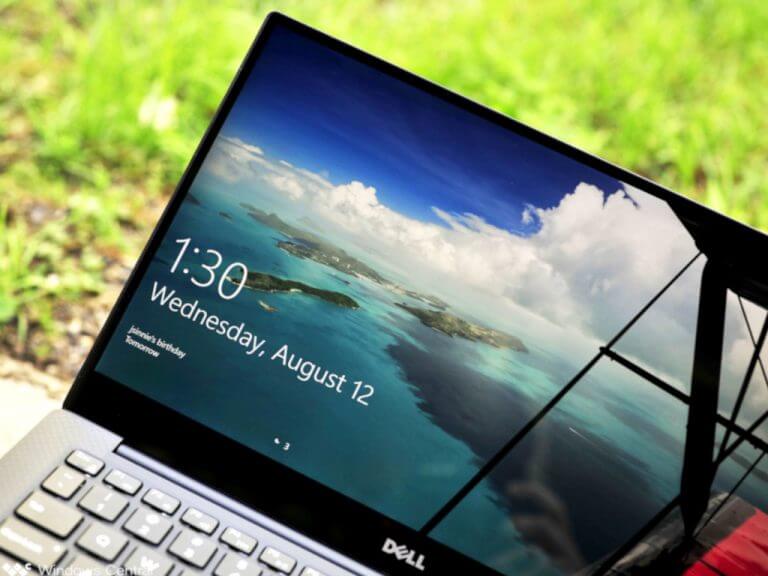Microsoft has just released new patches for Windows Insiders in the Release Preview and Beta ring today. The Windows 10 20H2 Build 19042.962 is available for Release Preview Insiders, and the 21H1 Build 19043.962 will also be offered to Beta channel Insiders as well as commercial devices in the Release Preview Channel on 21H1.
Both patches will appear with the same “KB5001391” code in number in Windows Update, and they include the same list of fixes detailed below. After testing the feature with Dev Channel Insiders in recent weeks, Microsoft is also bringing news and interests on the Windows taskbar to Beta and Release Preview rings with these two patches:
- We fixed an issue that prevents a site from transitioning out of Microsoft Edge IE Mode when expected.
- We fixed an issue that fails to remove mandatory profiles completely when you sign out when using the “Delete cached copies of roaming profiles” Group Policy.
- We fixed an issue that causes blank tiles to appear on the Start menu with names such as “ms-resource:AppName” or “ms-resource:appDisplayName”. These blank tiles represent the installed applications and appear for approximately 15 minutes after updating to a newer version of Windows 10. Installing this update prevents these blank tiles from appearing on the Start menu.
- We fixed an issue with the Microsoft Japanese Input Method Editor (IME) that prevents an app’s custom candidate window from displaying correctly.
- We are rolling out news and interests on the Windows taskbar to Beta and Release Preview rings. This has been available in the Dev Channel, with on-going improvements based on Insider feedback. News and interests on the taskbar make it easy to stay up to date with information at a glance, and we look forward to hearing what you think.
- We fixed an issue that occurs when you install inventory applications.
- We fixed an issue that includes kernel mode rules for .NET applications in Windows Defender Application Control policies. As a result, the generated policies are significantly larger than necessary.
- We fixed an issue that causes devices to fail Device Health Attestation.
- We fixed an issue that turns off S Mode when you enable System Guard Secure Launch on a system running Windows 10 in S Mode.
- We fixed an issue that causes lsass.exe memory usage to grow until the system becomes unusable. This occurs when Transport Layer Security (TLS) resumes a session.
- We fixed an issue with a race condition between Task Scheduler and the Workstation Service. As a result, users cannot automatically join a hybrid Azure Active Directory (AAD) domain and error 0x80070490 is generated.
- We fixed an issue that causes Azure Active Directory authentication to fail after signing in on Windows Virtual Desktop machines.
- We fixed an issue that causes AAD Work Accounts to unexpectedly disappear from certain apps such Microsoft Teams or Microsoft Office.
- We fixed an issue with a partial Service Connection Point (SCP) configuration that causes dsregcmd.exe to stop working. This issue occurs because of a case-sensitive domain ID name comparison that occurs when joining a hybrid Azure Active Directory domain using single sign-on (SSO).
- We fixed an issue that accidently triggers hybrid AAD joining when the Group Policy “Register domain-joined computers as devices” is set to DISABLED. For more information, see Post configuration tasks for Hybrid Azure AD join.
- We added the ability to adjust the amount of idle time before a headset goes to sleep in the Settings app for Windows Mixed Reality.
- We fixed an issue that might generate a stop error when Docker containers run with process isolation.
- We fixed an issue that causes automatic enrollment and certificate retrieval to fail with the error, “The parameter is incorrect.”
- We fixed an issue that might cause Microsoft Defender Application Guard virtual machines to stop responding when Microsoft Defender Application Guard for Office opens a document. This issue might occur on some devices or in drivers that utilize GPU Hardware Accelerated Scheduling.
- We fixed an issue that prevents some media players from playing content on hybrid devices that are running with dGPU on iGPU displays.
- We fixed an issue with race conditions that cause high CPU usage. As a result, the system stops working and deadlocks occur.
- We fixed an issue with a deadlock in the New Technology File System (NTFS).
- We fixed an issue that causes DWM.exe to stop working in some cases.
- We fixed an issue that might prevent an application screen from working when using a Remote Desktop ActiveX control that is embedded in an HTML page.
- We improved the Windows Server Storage Migration Service by:
- Adding support for migration from NetApp FAS arrays to Windows Servers and clusters.
- Resolving multiple issues and improving reliability.
- For more information, see Storage Migration Service overview.
Microsoft has yet to announce when Windows 10 21H1 will start rolling out to the general public, but it shouldn’t be long before all Insiders in the Release Preview ring get access to it. The next Windows 10 release will be a pretty minor update bringing multi-camera support for Windows Hello as well as performance improvements for Windows Defender Application Guard. Microsoft is reportedly planning a more substantial 21H2 update later this year, with Dev Channel Insiders currently testing news and interests in the taskbar and Auto HDR for games.


